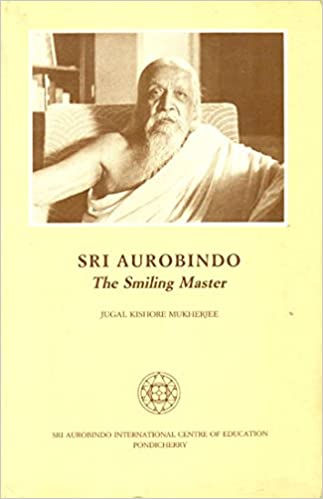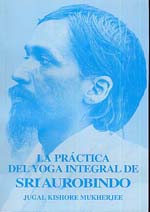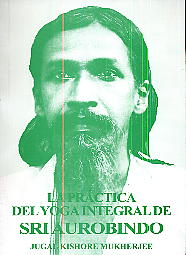Sri Aurobindo the Smiling Master
Since the passing of Sri Aurobindo in 1950 many research Publications have seen the light of day dealing with various aspects of Sri Aurobindo's life-work and teachings. But to our knowledge no book has so far been published exclusively devoted to the study of Sri Aurobindo's humorous writings. the present book hopes to break new ground in this particular
field.
Apropos of Nirodbaran's Twelve Years with Sri Aurobindo he Mother had once remarked: "Thanks to Nirod, we have a revelation of an altogether unknown side of what Sri Aurobindo was. It is extremely interesting and very instructive." It is the fond and humble hope of the writer of the present work that the readers will find in its pages another not so well-known but lovable side of the Master's personality revealed in ample measure, To our happy surprise we shall meet here "not the Sri Aurobindo of Himalayan grandeur and aloofness, but the modern Shakespeare of spiritual sublimity and jollity".
This is a book on humour. But, as Prof. Stephen Leacock has pointed out, "Articles and books on humour are apt to resolve themselves into a series of jokes and stories, or to take on all the appalling dullness of undiluted theory." In the present work the author has tried to strike a happy mean. Hence the sub-title, "Sri Aurobindo's Humour: An Analysis and an Anthology". The book does not reduce itself to the task of a bare 'assembling' of jokes and witty remarks made by Sri Aurobindo nor does it degenerate into an unmitigated theorising. This is avowedly a book of research analysis, an analysis of The canons and principles and art of humour; but, in each case, appropriate examples have been immediately cited to illustrate the principle discussed, followed by a full quota of Sri Aurobindo
dto.
La práctica del yoga integral . Tomo II
El principio fundamental de cualquier yoga es, como todo el mundo sabe, la transformación de uno o varios poderes de nuestra existencia humana en un instrumento para alcanzar al Ser divino.
En un yoga ordinario se selecciona un poder central del ser que se convierte en medio, vehículo y sendero de autorrealización. En el yoga de Sri Aurobindo, que es un yoga de
síntesis por naturaleza, se combinan los diferentes poderes englobándolos en el instrumento transmutado.
Llegar por el camino más corto al más vasto desarrollo de los poderes espirituales y del ser, y divinizar mediante ello la naturaleza liberada en todos los niveles de la vida humana, tanto interiores como exteriores, individuales o colectivos, es el motivo inspirador del Yoga Integral.
Pero la pregunta es: ¿Cómo llevar este yoga a la práctica? La Práctica del Yoga Integral de Jugal Kishore Mukherjee es un tratado completo sobre el ejercicio del yoga de transformación integral, así propuesto por Sri Aurobindo y la Madre. Este libro es fruto de un trabajo continuo de una reflexión profunda y de la experiencia interior.
Combinando la claridad y el pensamiento analítico de un científico con la penetración psíquica de un sádhaka, el Profesor Mukherjee ha escrito esta obra en dos volúmenes que es, al mismo tiempo, lúcido y profundo. Su amplia visión, su autenticidad y sobriedad harán de La Práctica del Yoga Integral una compañía ideal y un excelente vademecum para la praxis del Yoga Integral.
dto.




